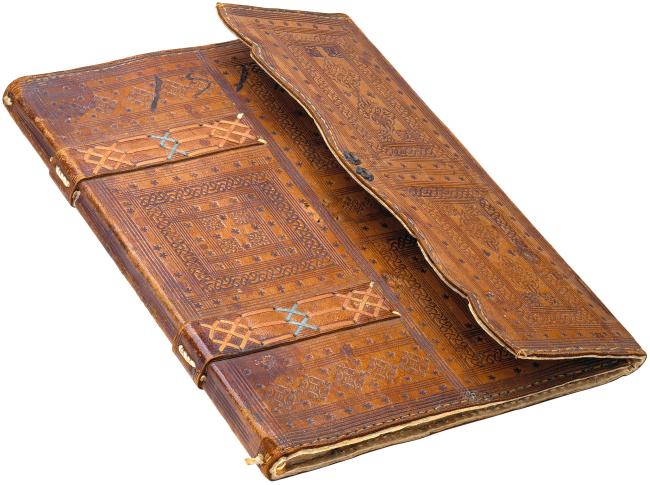
Accession number
PML 78802
Creator
Lanfredino Lanfredini.
Credit line
Julia P. Wightman,
Description
1 item.
Notes
A description of the manuscript by the accounting historian Richard A., Goldthwaite, 5 December 2004, is in the department's binding file.
Binding
16th-century Florentine envelope binding (ledger binding), of light brown goatskin over paper boards (30.5 x 22.5 cm) blind-tooled with knotwork and arabesque tools, with ornamental stitching of blue and pink thread and silk ribbon.
Catalog link
Classification
Century
Department
